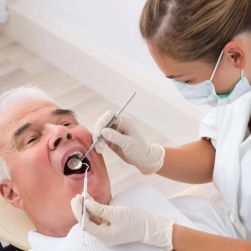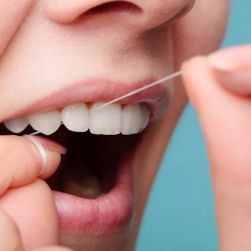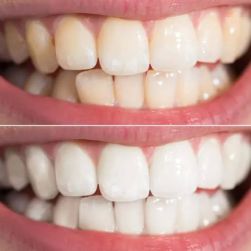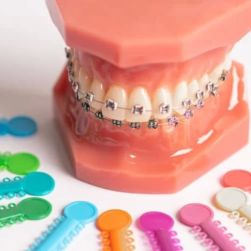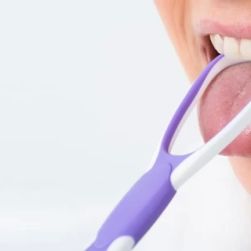How to Deal with Oral Health Issues Related to Medications
Many of us rely on medications to maintain our health, but what if those medications are affecting our oral health? Over the years, I’ve learned firsthand how some prescription drugs can lead to unexpected dental problems. As someone who has had their share of visits to the dentist, I can tell you that oral health issues related to medications are more common than we realize. From dry mouth to tooth decay, the side effects can be both surprising and challenging to manage. In this article, I’ll share how you can deal with oral health issues caused by medications, and hopefully, you’ll find some useful tips to keep your smile healthy!
1. The Connection Between Medications and Oral Health
Before diving into solutions, it’s important to understand why medications can impact oral health. Medications can cause a variety of side effects, and many of them can affect the mouth in one way or another. As I’ve discovered, some medications dry out your mouth, reducing saliva production, which is essential for oral health. Without enough saliva, the mouth becomes more vulnerable to bacteria, leading to issues like tooth decay, gum disease, and bad breath.
In my experience, medications that are commonly prescribed for conditions like hypertension, depression, allergies, and pain can all cause a dry mouth. But that’s not all; some medications can also cause inflammation in the gums or even lead to a condition called "medication-related osteonecrosis of the jaw" (MRONJ), which can severely affect your jawbone health. Keeping an eye on these potential issues is key to protecting your smile.
2. Dealing with Dry Mouth (Xerostomia)
One of the most common side effects of medications is dry mouth, also known as xerostomia. When I first started taking antihistamines for allergies, I quickly realized my mouth felt constantly dry. I had to drink more water than usual, and even then, I felt uncomfortable. Dry mouth is more than just a minor inconvenience; it can lead to serious oral health issues like tooth decay and gum disease because saliva plays a critical role in neutralizing acids, washing away food particles, and preventing bacterial growth.
If you’re experiencing dry mouth, don’t worry; there are several strategies you can use to manage it:
- Stay Hydrated: Drink plenty of water throughout the day to keep your mouth moist. Sipping water regularly can also help wash away food particles and bacteria.
- Use Saliva Substitutes: There are over-the-counter saliva substitutes that can help keep your mouth moist. These products come in the form of sprays or gels and are designed to mimic the effects of natural saliva.
- Chew Sugar-Free Gum: Chewing gum can stimulate saliva production, which is essential when you have dry mouth. Opt for sugar-free gum to avoid feeding harmful bacteria that contribute to tooth decay.
- Avoid Certain Foods: Try to avoid foods that can worsen dry mouth, such as salty or spicy foods, caffeine, and alcohol.
3. Protecting Your Teeth from Decay
Another major concern for people taking medications is the increased risk of cavities. With reduced saliva production, food particles and plaque remain in the mouth for longer periods, leading to the growth of harmful bacteria that cause tooth decay. I experienced this firsthand when I noticed that despite brushing regularly, I started developing more cavities than usual after taking certain medications.
Here are a few tips that helped me prevent cavities:
- Brush and Floss Regularly: This one might seem obvious, but it’s especially important when you’re dealing with dry mouth or medication-induced oral issues. Brush your teeth at least twice a day and floss daily to remove plaque and food particles that can lead to decay.
- Use Fluoride Products: Fluoride toothpaste and mouthwash can help remineralize your teeth and make them more resistant to cavities. I’ve found fluoride mouthwashes to be particularly helpful in preventing cavities during my medication regimen.
- Visit Your Dentist Regularly: Regular dental checkups are crucial when you’re dealing with medication-related oral health issues. Your dentist can catch any problems early and provide professional cleanings to remove plaque buildup.
4. Dealing with Gum Disease
Another common issue with medications is gum disease, which can occur due to a combination of factors like dry mouth and medication-induced changes in the gums. I once took a medication that made my gums feel swollen and tender. This condition is known as "medication-induced gingival enlargement," and it can make it difficult to properly clean your teeth, leading to further issues.
If you notice swelling, tenderness, or bleeding of the gums, it’s important to take action right away. Here’s what I recommend:
- Practice Good Oral Hygiene: Keeping your gums healthy starts with brushing and flossing regularly. Be gentle when cleaning around swollen or irritated gums to avoid further irritation.
- Use an Antiseptic Mouthwash: An antiseptic mouthwash can help reduce bacteria in the mouth and prevent gum disease. I’ve used mouthwashes with chlorhexidine, which is especially effective in controlling gum problems.
- Adjust Your Medication (With Your Doctor’s Approval): If gum problems persist, talk to your doctor about adjusting your medication or trying an alternative that might have fewer side effects on your oral health.
5. Seeking Professional Help
While managing oral health problems at home can be effective, there are times when professional intervention is necessary. I’ve learned that having a good relationship with my dentist is key when it comes to handling medication-related oral health issues. A dentist can provide tailored advice, professional treatments, and monitor your oral health over time to ensure that any problems are addressed promptly.
If you notice any changes in your oral health after starting a new medication, don’t hesitate to reach out to your healthcare provider and dentist. It’s essential to have open communication about how your medications might be affecting your oral health so you can receive the best care possible.
Oral health is crucial, and while medications may present some challenges, there are plenty of strategies and resources to help you manage any issues. With the right care and professional guidance, you can continue to enjoy a healthy smile regardless of your medication regimen.

